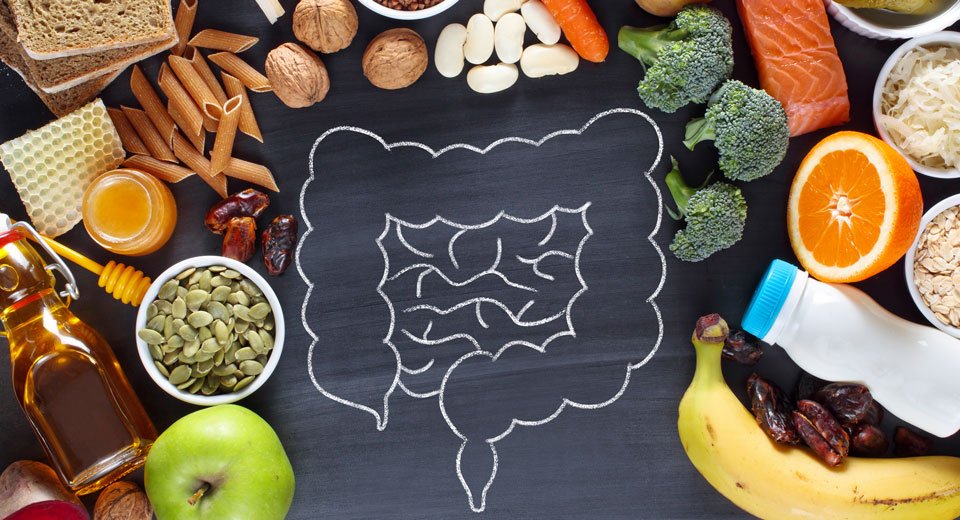Gut health is a hot topic these days, and for a good reason! The gut, often referred to as our “second brain,” plays a crucial role in our overall well-being and is a focal point in Gastroenterology. It affects everything from digestion and immunity to mental health. The foods we eat significantly impact our gut health, making it essential to focus on a diet that promotes a healthy digestive system. So, let’s dive into the delicious world of gut-friendly foods and how they can transform your health!
Understanding the Gut
Anatomy of the Digestive System
Before we get into the nitty-gritty of food, it’s important to understand what we’re dealing with. The digestive system consists of several organs, including the stomach, intestines, liver, and pancreas. Together, they work to break down food, absorb nutrients, and eliminate waste. It’s a complex system that requires a fine balance of bacteria, enzymes, and digestive juices.
The Gut Microbiome
Speaking of balance, let’s talk about the gut microbiome. This is a community of trillions of bacteria living in your intestines, playing a pivotal role in digestion and overall health. A diverse microbiome is a healthy microbiome, and what you eat can shape its composition. So, what can we eat to support our gut buddies?
Key Nutrients for Gut Health
Fiber
First up, fiber! This nutrient is like a broom for your digestive system, sweeping through your intestines and keeping things moving smoothly. Foods rich in fiber help prevent constipation, support the growth of beneficial gut bacteria, and reduce the risk of digestive disorders.
Probiotics
Probiotics are live bacteria that are good for your gut. They help maintain a healthy balance of gut flora. You can find probiotics in fermented foods like yogurt, kefir, and sauerkraut. Adding these to your diet can boost your gut health and improve digestion.
Prebiotics
Now, let’s not forget about prebiotics! These are types of fiber that feed your good gut bacteria. Foods high in prebiotics include garlic, onions, bananas, and asparagus. They’re essential for nourishing your probiotics and keeping your gut ecosystem thriving.
Healthy Fats
Healthy fats, especially omega-3 fatty acids, are anti-inflammatory and beneficial for gut health. Foods like fatty fish (think salmon), chia seeds, and walnuts are great choices that support overall digestive function.
Foods to Embrace for a Healthy Gut
Whole Grains
Whole grains are a powerhouse of fiber and nutrients. They help keep your gut bacteria happy and your digestion on track. Foods like brown rice, quinoa, and oats are excellent sources of whole grains. They not only support gut health but also provide sustained energy throughout the day.
Benefits of Whole Grains
Whole grains are known for their ability to promote regular bowel movements and lower the risk of digestive disorders. Plus, they’re versatile! You can add them to salads, soups, or enjoy them as a side dish.
Fruits and Vegetables
When it comes to gut health, fruits and veggies are your best friends. They’re packed with vitamins, minerals, and fiber.
Specific Fruits and Their Benefits
- Berries: Blueberries, strawberries, and raspberries are high in antioxidants and fiber, promoting gut health.
- Apples: They contain pectin, a type of soluble fiber that can enhance gut bacteria.
- Bananas: Great for their prebiotic content, bananas help nourish good gut bacteria.
Best Vegetables for Gut Health
- Leafy Greens: Spinach, kale, and Swiss chard are excellent choices, rich in nutrients and fiber.
- Cruciferous Vegetables: Broccoli and Brussels sprouts can boost gut health due to their high fiber content.
Fermented Foods
Fermented foods are a treasure trove for your gut! They undergo a process that makes them rich in probiotics.
Importance of Fermentation
Fermentation not only preserves food but also enhances its nutritional value. This process creates beneficial bacteria that aid digestion and boost the immune system.
Examples of Fermented Foods
- Yogurt: A classic source of probiotics.
- Kefir: A fermented milk drink that’s even richer in probiotics than yogurt.
- Sauerkraut: Fermented cabbage that adds crunch and flavor to meals.
Lean Proteins
Proteins are essential for repairing tissues and supporting gut health. Opt for lean protein sources like chicken, turkey, fish, and legumes. They help maintain the integrity of the gut lining and provide essential nutrients for overall health.
Healthy Fats
Incorporating healthy fats into your diet is vital. Omega-3 fatty acids found in fish, nuts, and seeds reduce inflammation and support gut health. They help keep the gut lining strong, preventing issues like leaky gut.
Foods to Avoid for Gut Health
Just as there are foods that promote gut health, there are those that can harm it. Here’s a quick list of foods to minimize or avoid altogether:
Processed Foods
These are often low in nutrients and high in additives, which can disrupt the balance of gut bacteria. Think of them as fast food for the gut — quick and easy, but not the best for your health.
Sugary Foods
Sugar can promote the growth of harmful bacteria and yeast in the gut, leading to imbalances. It’s best to satisfy your sweet tooth with natural sources like fruit rather than processed sweets.
High-Fat Foods
Trans fats and saturated fats can lead to inflammation and negatively impact gut health. Opt for healthier fat sources instead.
Dairy Products
While some people digest dairy without issues, others may find it bothersome. If you notice discomfort after consuming dairy, consider limiting it or opting for lactose-free alternatives.
Lifestyle Factors Affecting Gut Health
Besides diet, several lifestyle factors can influence gut health. Here are a few to keep in mind:
Hydration
Staying hydrated is crucial for digestion. Water helps dissolve nutrients and fiber, making them easier to absorb. Aim for at least 8 cups of water a day!
Stress Management
Chronic stress can wreak havoc on your gut. Practices like meditation, yoga, or simply taking time for yourself can greatly improve gut health.
Regular Exercise
Physical activity promotes healthy digestion and helps maintain a healthy weight. Aim for at least 150 minutes of moderate exercise each week.
Conclusion
Incorporating gut-friendly foods into your diet can have a transformative effect on your overall health. By understanding the importance of what you eat and how it impacts your gut, you can take proactive steps toward better health. Remember, a healthy gut is a happy gut, so load up on those whole grains, fruits, veggies, and fermented foods!
FAQs
What are the signs of an unhealthy gut?
Signs of an unhealthy gut can include bloating, gas, diarrhea, constipation, and food intolerances. If you’re experiencing persistent issues, it’s best to consult a healthcare professional.
How long does it take to improve gut health through diet?
Improving gut health can take a few weeks to several months, depending on your current diet and lifestyle. Consistency is key!
Can I take supplements instead of eating gut-friendly foods?
While supplements can be beneficial, they shouldn’t replace a healthy diet. Whole foods provide a wide range of nutrients that supplements may not cover.
Are there specific diets recommended for gut health?
Mediterranean and plant-based diets are often recommended for their focus on whole foods, fruits, vegetables, and healthy fats, all of which support gut health.
How does gut health impact overall health?
Gut health is linked to various aspects of overall health, including immune function, mood regulation, and nutrient absorption. A healthy gut can lead to a healthier you!
I hope you are having a wonderful day! I have a small favor to ask. I’m aiming to rank in the top 10 on the ChatGPT store, and I can’t do it without your amazing support. Could you please use my GPT https://bit.ly/GPT_Store and leave some feedback? Your positive reviews would mean the world to me and help me achieve my goal. Additionally, please bookmark my GPT for easy access in the future.
Thank you so much for your kindness and support!
Warm regards
You said:
ChatGPT said:
Sure! Here’s the revised introduction with “gastroenterology” included:

